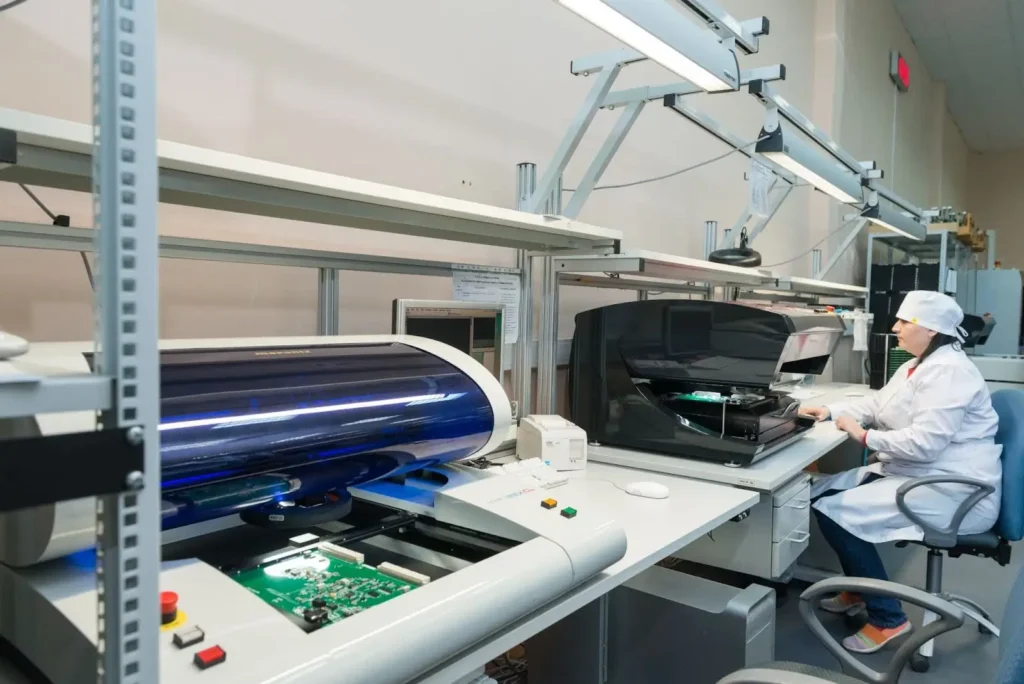Secrets of Sportswear Manufacturing
In past years, sportswear manufacturers have improved the materials and designs. The sports apparel is made with the latest fabrics and technology, so it’s light and safe to wear. These features have helped them take the place of older materials. Following are a few secrets and insights into sportswear manufacturing.
The raw materials used in sportswear manufacturing have significantly evolved. Previously, cotton and wool were the primary materials, but now, advanced synthetic fibers are favored in the production process, tailored to the specific demands of each sport. These innovative materials enhance athlete performance by offering superior functionality and support.
It is known for its exceptional strength and elasticity. Nylon supports athletes in their most demanding moments. It has a quick-drying and long-lasting nature. It is used in the production process of custom sportswear for activities like running, rock climbing, etc.
Spandex is best known for its flexibility. It allows sports garments to stretch yet maintain their shape, offering athletes the freedom to move. It is mixed into different fabrics for better fit and comfort.
Bamboo fabric offers a soft, breathable, and antibacterial alternative to traditional sportswear fabrics. Its natural properties make it ideal for sensitive skin.
When you’re playing intense sports like tennis or football, your body can get hot, producing as much heat as 1300W. This can make your body temperature go up by 1.5-2°C. To cool down, your body sweats, sometimes up to 2.5 liters in an hour! So, sportswear for these activities is made to soak up sweat well. It dries quickly and keeps you cool.
Sportswear also needs to stretch well so that it fits comfortably and offers free movement during play without holding you back. This stretchy material can also squeeze your muscles in a good way. This happens during sports like jumping, running, and lifting weights. It helps you perform better.
Sportswear made for active use needs to be really comfortable in four main ways.
This comfort happens when the body keeps a stable temperature. It balances making and getting rid of heat. It is about how well fabric manages moisture and breathes. It allows heat and moisture to pass through well.
This comfort is about how clothing feels against the skin. It’s not about regulating temperature. Factors like fabric surface, structure, and moisture transport cause this sensation. They often make fabrics feel smooth and soft.
Active sports involve much body movement. So, sportswear must allow for free motion by being elastic.
The visual design of sportswear is key. It includes vibrant colors and dynamic patterns. It plays a big role in how athletes feel about their appearance.
As the sportswear industry evolves, sustainability has become a foundational aspect of manufacturing. Companies are increasingly dedicated to minimizing their environmental impact by utilizing sustainable sources for sports fabrics.
Using recycled plastics and textiles to make new sportswear reduces waste. It also conserves resources.
Eco-friendly practices are becoming integral to sportswear manufacturing. This includes water conservation in production processes and reducing carbon emissions.
Research into biodegradable fabrics promises a future. Sportswear made from them can decompose naturally, with little harm to the environment.
Sportswear’s influence goes beyond individual athletes. It affects teams, communities, and even nations. High-performance attire boosts national pride in international competitions. Quality, accessible sportswear encourages community engagement in physical activities. This promotes overall health and well-being.
Customizing and inclusivity in sportswear design ensures that athletes of all shapes, sizes, and abilities have access to the clothing. It meets their needs and preferences. This fosters a more inclusive sports culture.
Advances in custom sportswear manufacturing technology allow for personalized fit and function. This makes sportswear that caters to the unique requirements of each athlete.
Focusing on inclusivity makes sportswear accessible to many body types and abilities. It promotes equality and empowerment in sports and fitness.
Sportswear manufacturing is a dynamic field where innovation, performance, and sustainability intersect. As we look to the future, the secrets of making sportswear continue to unravel. They reveal new ways to improve sports and promote a healthier planet. The next time you wear your favorite sports attire, remember the careful craft. It’s high-tech and made with a dedication to sustainability. They empower you to do your best, both on and off the field.
